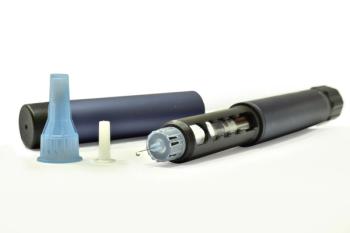
FDA OKs Ofatumumab for Treatment of Relapsing Multiple Sclerosis
Ofatumumab (Kesimpta; Novartis) is the first and only self-administered, targeted B-cell therapy for the treatment of relapsing multiple sclerosis.
The FDA has approved ofatumumab, formerly OMB157 (Kesimpta; Novartis) as an injection for subcutaneous use for the treatment of relapsing forms of multiple sclerosis (RMS), to include clinically isolated syndrome, relapsing-remitting disease, and active secondary progressive disease in adults, according to a press release.1
Ofatumumab is a targeted, precisely dosed and delivered B-cell therapy that has demonstrated superior effectiveness and a comparable safety profile to teriflunomide.
The subcutaneous treatment can be self-administered once monthly at home, which provides flexibility and convenience for individuals with RMS, according to Novartis. It is the first B-cell therapy that can be self-administered in this setting via the Sensoready® autoinjector pen.
Multiple sclerosis is a chronic inflammatory disease of the central nervous system that leads to myelin destruction and axonal damage in the brain, optic nerves, and spinal cord. RMS management prioritizes the preservation of neurological function to impede the worsening of disability. While several disease-modifying therapies (DMTs) are available, many patients continue to experience disease activity. Patients with RMS may experience improvements in long-term outcomes when high-efficacy treatments are started early.
Because of the complexity of RMS, a range of treatments are recommended, according to Bruce Bebo, PhD, executive vice president of research at the National MS Society.
Approval was based on 2 phase 3 ASCLEPIOIS studies recently published in The New England Journal of Medicine. The studies found that ofatumumab was superior over teriflunomide in significantly reducing the annualized relapse rate (ARR), 3-month confirmed disability progression (CDP), and the number of gadolinium-enhancing (Gd+) T1 and new or enlarging T2 lesions.
Novartis expects the treatment for RMS to be available in the United States by early September 2020.
“This approval is wonderful news for patients with relapsing multiple sclerosis. In the key clinical studies, this breakthrough treatment produced a profound reduction in new brain lesions, reducing relapses, and slowing underlying disease progression,”1 said Professor Stephen L. Hauser, director of the UCSF Weill Institute for Neurosciences and co-chair of the steering committee for the ASCLEPIOS I and II studies. “Through its favorable safety profile and well-tolerated monthly injection regimen, patients can self-administer the treatment at home, avoiding visits to the infusion center.”1
Reference:
- FDA Approves Novartis Kesimpta (ofatumumab), the first and only self-administered, targeted B-cell therapy for patients with relapsing multiple sclerosis. News Release. MultiVu; August 20, 2020. Accessed August 20, 2020.
https://www.multivu.com/players/English/8706051-novartis-kesimpta-fda-approval/ .
Newsletter
Pharmacy practice is always changing. Stay ahead of the curve with the Drug Topics newsletter and get the latest drug information, industry trends, and patient care tips.























